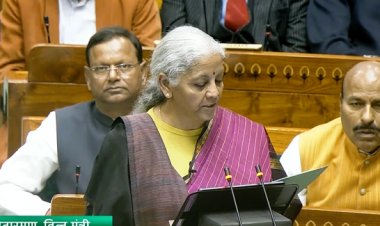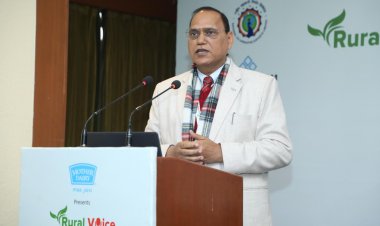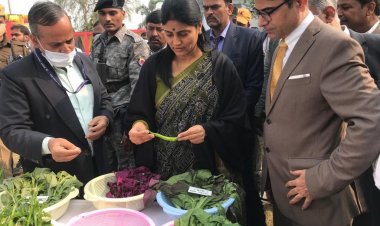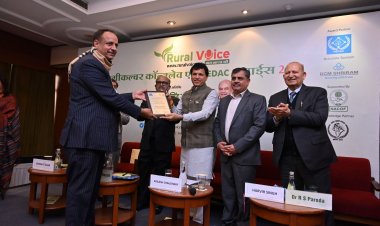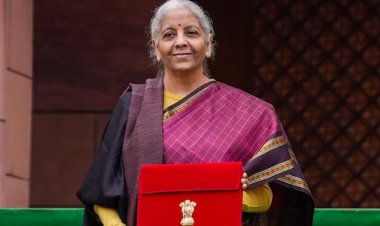Plants of GM Mustard must be uprooted to avoid contamination of environment: SC told
The seeds of GM mustard have started germinating after their environmental release and before the plants start flowering in few weeks they must be uprooted to prevent the environment from getting irreversibly contaminated, campaigners against genetically modified crops told the Supreme Court on Wednesday
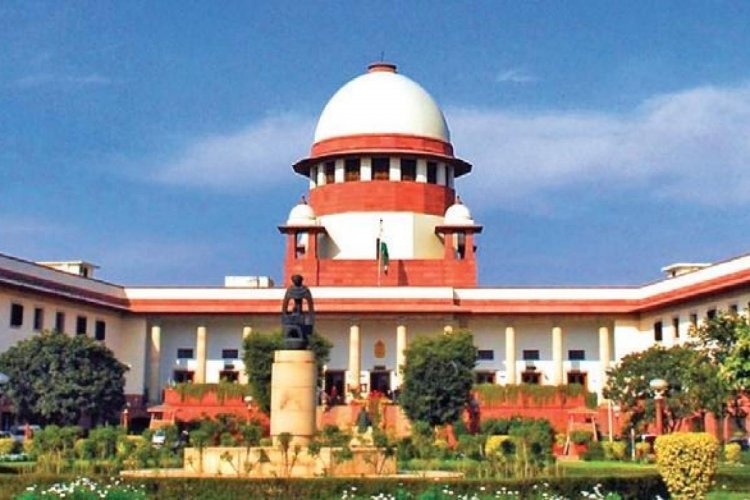
The seeds of GM mustard have started germinating after their environmental release and before the plants start flowering in few weeks they must be uprooted to prevent the environment from getting irreversibly contaminated, campaigners against genetically modified crops told the Supreme Court on Wednesday.
On October 18, the Genetic Engineering Appraisal Committee (GEAC) under the Union environment ministry approved the environment release of transgenic mustard hybrid DMH-11 and the parental lines containing barnase, barstar and bar genes so that they can be used for developing new hybrids.
A bench of Justices Dinesh Maheshwari and BV Nagarathna was told by advocate Prashant Bhushan, appearing for activist Aruna Rodrigues, that no one knows about the effect of environmental release of the Genetically Modified (GM) mustard, which has the potential of contaminating all mustard seeds in the country.
"The only benefit claimed is that the technology will be used for developing new hybrids. The precautionary principle is squarely applicable to this case. When there is significant doubt about the potential harmful effect of allowing something, this principle applies," he said.
Both Rodrigues and petitioner NGO 'Gene Campaign' have in their separate pleas sought a moratorium on the release of any genetically modified organisms (GMOs) into the environment pending a comprehensive, transparent and rigorous bio-safety protocol in the public domain conducted by agencies of independent expert bodies the results of which are made public.
Bhushan argued that at present the GEAC says GM mustard will be used for creating more hybrids but it will eventually lead to its commercial cultivation.
"Hybridisation is not a new technology. There are non-GM hybrids that far outperform GM crops. There are over 4,000 varieties of mustard being cultivated in India and almost every household in the country consumes it. All such varieties will be contaminated, if environmental release is not stopped," he said.
When the bench asked whether the petitioner is seeking that there should not be any release of GM mustard, Bhushan said, "No. I am seeking it should not be released in an open environment. They are free to use GM mustard in controlled greenhouse as harmful effects outweigh the benefits.”
He added the Technical Expert Committee constituted by the top court has recommended a moratorium of 10 years on field trials of BT Transgenics, and in the final report, recommended an indefinite and complete ban on herbicide-tolerant crops. Bhushan noted GM mustard is said to be herbicide resistant as they will absorb them but these herbicides contain substances which are carcinogen and have harmful effects on humans and animals as well as plants.
"The government has no regulatory mechanism. They don't even have labs. How will they monitor and prevent the farmers from spraying herbicides? Once they spray the herbicides, it will be absorbed. All the studies have been conducted by the GM crop manufacturers or other corporates," he said, adding in the US wherever this GM crop was planted, it has resulted in collapse of pollinators like honey bees.
He referred to parliamentary standing committee reports and said serious concerns have been voiced in each of them. Bhushan cited objections by late scientist PM Bhargava before the committee on the issue of GM crops.
Senior advocate Sanjay Parikh, appearing for 'Gene Campaign', referred to Technical Expert Committee reports and said there are major gaps in the regulatory system which need to be addressed first, and till then, conducting field trials of GM crops is not advisable.
"The GEAC is an appraisal committee and not an approval committee and despite that it is giving approvals for field trials", he said.
The hearing remained inconclusive and the bench asked Attorney General R Venkataramani to make his submission on the next date of hearing.
At a meeting on October 18, the GEAC, the country's regulator for genetically modified organisms, recommended the "environmental release of mustard hybrid DMH-11 for its seed production and testing as per existing ICAR guidelines and other extant rules/regulations before commercial release".
The transgenic mustard hybrid DMH-11 has been developed by the Centre for Genetic Manipulation of Crop Plants (CGMCP) at Delhi University.
The government has so far approved (in 2002) only one GM crop- Bt cotton- for commercial cultivation.
On November 9, the Centre told the top court that issues raised by the petitioners fall within the domain of the executive, aided by scientific and other technical experts.
"The research, development and use of genetic engineering technologies is a highly technical matter guided by views that emerge from scientific consensus among subject experts. As such, it is most humbly submitted that the inquiry of this court may be limited to whether there is an adequate regulatory mechanism in place governing this field and whether there has been material compliance with the same," it said.
On November 3, the top court had asked for maintaining the status quo on GEAC's decision to approve genetically-modified mustard for commercial cultivation. It had directed the government to ensure no precipitate action is taken until an application is filed before it has been heard



 Join the RuralVoice whatsapp group
Join the RuralVoice whatsapp group

















